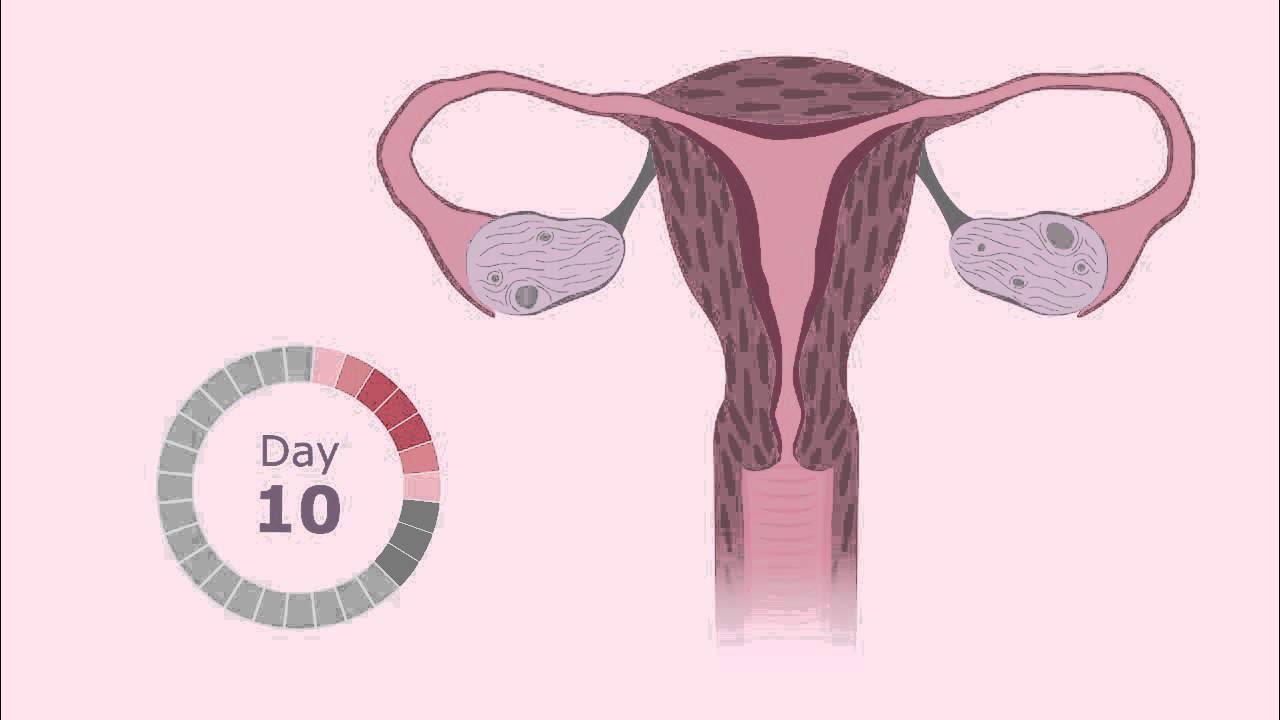The Menstrual Cycle - GCSE Biology (9-1)
Summary
TLDRThe video explains the menstrual cycle, a monthly process where the female body prepares for pregnancy. It involves releasing an egg and ensuring the uterus is ready for embryo implantation. If pregnancy doesn't occur, the body resets for the next cycle. The cycle averages 28 days and has four phases: menstruation, uterine lining buildup, ovulation, and maintenance of the uterine lining. Key hormones like estrogen, progesterone, LH, and FSH control the cycle by regulating egg release and uterine lining maintenance to support potential pregnancy.
Takeaways
- 🔄 The female body prepares monthly for pregnancy by resetting if no pregnancy occurs.
- 🛑 If fertilization doesn’t happen, the cycle restarts for the next month.
- 🧬 The menstrual cycle involves releasing an egg and ensuring the uterus is ready for embryo implantation.
- 📅 The average length of the menstrual cycle is 28 days, though it can vary.
- 🩸 Phase 1 is menstruation, where the uterus lining breaks down and bleeding occurs, lasting around 4 days.
- 🛠️ Phase 2 is the rebuilding of the uterus lining over approximately 10 days.
- 🥚 Phase 3 is ovulation, where an egg is released from the ovary.
- 🔒 Phase 4 involves maintaining the uterus lining in case of pregnancy.
- 🧪 The cycle is controlled by four key hormones: estrogen, progesterone, LH, and FSH.
- 📈 Estrogen and progesterone levels fluctuate throughout the cycle, with progesterone maintaining the uterus lining in the second half of the cycle.
Q & A
What is the main function of the menstrual cycle?
-The menstrual cycle prepares the female body for pregnancy each month by ensuring that an egg is released and that the uterus is in optimal condition for an embryo to implant.
What happens if pregnancy does not occur during a cycle?
-If pregnancy does not occur, the body resets the process, and the menstrual cycle begins again, preparing the body for the possibility of pregnancy the following month.
How long does the average menstrual cycle last?
-The average menstrual cycle lasts around 28 days, although it can vary from person to person and from month to month.
What are the four key phases of the menstrual cycle?
-The four key phases are: 1) Menstruation (bleeding phase), 2) Uterus lining build-up, 3) Ovulation (egg release), and 4) Maintenance of the uterus lining.
What is the role of oestrogen in the menstrual cycle?
-Oestrogen, produced in the ovaries, causes the uterus lining to thicken and stimulates the release of other hormones that eventually lead to ovulation.
What is the function of progesterone in the cycle?
-Progesterone, primarily active in the second half of the cycle, maintains the thickened uterus lining and prevents the release of additional eggs.
Which two hormones are produced by the pituitary gland during the menstrual cycle?
-Luteinizing hormone (LH) and follicle-stimulating hormone (FSH) are produced by the pituitary gland during the menstrual cycle.
What triggers ovulation in the menstrual cycle?
-Ovulation is triggered by a spike in luteinizing hormone (LH), which is stimulated by an increase in oestrogen levels.
How does progesterone affect FSH production?
-Progesterone inhibits the production of follicle-stimulating hormone (FSH) in the second half of the cycle to prevent the maturation of new eggs once an egg has already been released.
What is the purpose of FSH during the menstrual cycle?
-FSH helps an egg mature in the ovary during the early phase of the cycle, preparing it for release during ovulation.
Outlines

This section is available to paid users only. Please upgrade to access this part.
Upgrade NowMindmap

This section is available to paid users only. Please upgrade to access this part.
Upgrade NowKeywords

This section is available to paid users only. Please upgrade to access this part.
Upgrade NowHighlights

This section is available to paid users only. Please upgrade to access this part.
Upgrade NowTranscripts

This section is available to paid users only. Please upgrade to access this part.
Upgrade NowBrowse More Related Video

The Menstrual Cycle

The Menstrual Cycle Explained - 4 PHASES OF MENSTRUAL CYCLE MADE EASY!

siklus menstruasi pada wanita - fase menstruasi - hormon yang bekerja pada saat menstruasi

Alat Reproduksi Wanita || Oogenesis || Siklus Menstruasi || Sistem Reproduksi Manusia

Lesson 4: The Feedback Mechanism in Menstrual Cycle

Puberty and The Hormones Involved | Physiology | Biology | FuseSchool
5.0 / 5 (0 votes)